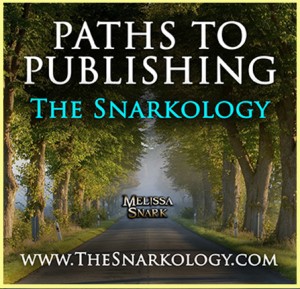C’mon over on the Snarkology blog, and visit with Racheline Maltese.
When she and her co-author Erin McRae jumped into the LGBTQ+ Romance niche market, they already had publishing experience in poetry and short SFF fiction, as well as long- and short-form nonfiction.
Their path to publication had some hitches: unlearning some ‘stuffy’ professional habits from their previous genres, re-tooling editorial expectations learned in non-fiction publishing, and being aware of the unique preferences of the M/M romance readership.
Their first M/M romance novel arrived from Torquere Books in 2014, to great reviews, and their second novel in the series is coming out soon.
One of Erin’s comments really stands out as sound advice/thought exercise for authors joining the M/M romance market from other genres:
“As people who have read more gay literature than gay romance, we weren’t necessarily aware of the likes and dislikes of much of the M/M romance community when it came to narrative items like bisexuality and polyamory. While knowing these things earlier wouldn’t have changed the story we wanted to write*, they would have changed how we marketed our book to publishers and readers earlier on in the process.” **
* My emphasis. As the M/M romance genre ‘grows up’ and becomes more and more professionally published and marketed, I hope that more authors opt for fearless original choices instead of those based only in fan-service customs. I hope that more readers give them a chance. One huge ongoing debate/ argument/screaming trollfest in M/M romance pits authors and readers only backing M/M stories (for whatever creative or personal reason), vs those who write broader romances including bisexuality and polyamory.
** The key to bridging those divides is probably the same response that Racheline and Erin noted: more-targeted and clarified marketing to publishers and readers. Love is love, and good writing is good writing – as I’ve found in many fanfiction pairings/groupings. When readers trust that authors know what they’re doing with the established tropes, those authors get more respect and leeway when they try something different.
